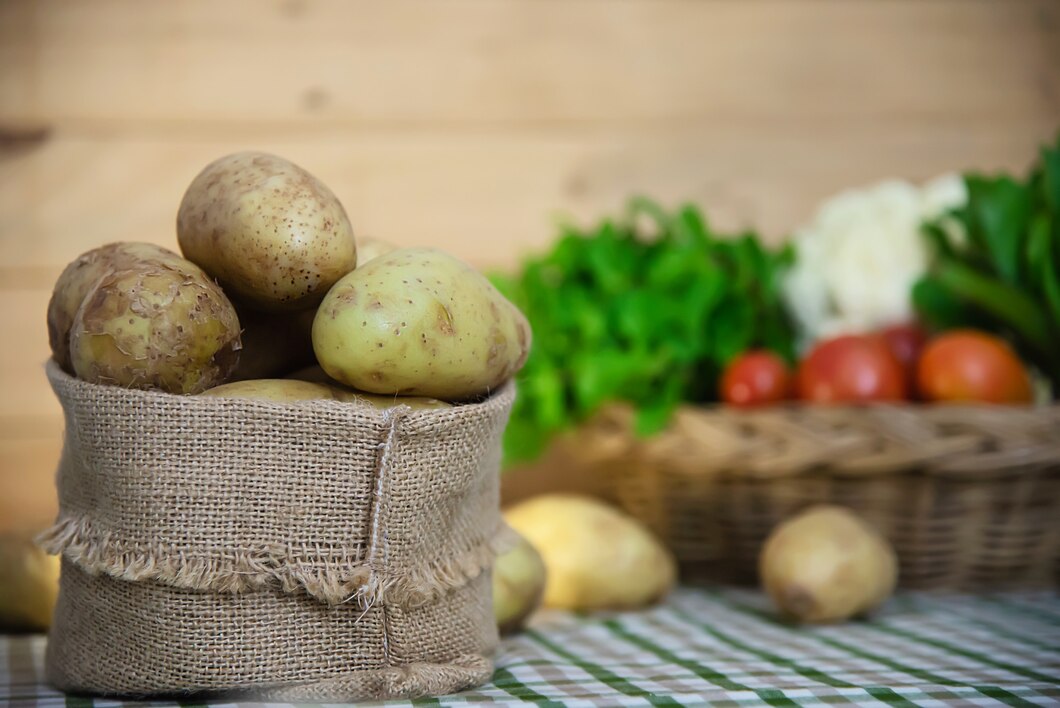While many foods we consume daily are nutritious, certain commonly eaten foods can turn toxic if not prepared or handled correctly. In some cases, they contain naturally occurring toxins that pose a risk if consumed in excess or without the necessary precautions. Below are 10 foods that can be poisonous and their antidotes or safety measures to prevent harm.
1. Green Potatoes
Potatoes that have turned green due to light exposure contain a toxin called solanine, which can cause nausea, headaches, and even neurological problems in large amounts. The solanine is found mostly in the skin and sprouts.
Antidote/Prevention: Remove any green parts and sprouts before cooking. If the potato has turned extensively green, discard it.
2. Bitter Almonds
Bitter almonds contain amygdalin, which can convert to cyanide in the body. Even a small amount can cause symptoms like dizziness, difficulty breathing, and even death in extreme cases.
Antidote/Prevention: Only consume sweet almonds, which do not contain harmful levels of amygdalin. Bitter almonds are usually processed to remove toxins.
3. Cassava (Manioc)
Cassava, a staple food in many African countries, contains cyanogenic glycosides, which can release cyanide when eaten raw or improperly prepared. If consumed in large quantities without adequate preparation, it can lead to cyanide poisoning.
Antidote/Prevention: Always peel and cook cassava thoroughly, either by boiling, steaming, or baking. Avoid eating it raw.
4. Raw Kidney Beans
Raw or undercooked kidney beans contain phytohemagglutinin, a toxin that can cause severe nausea, vomiting, and diarrhea. Just a few raw beans can trigger these symptoms.
Antidote/Prevention: Soak kidney beans for at least 5 hours and cook them at a boiling temperature for at least 10 minutes to neutralize the toxin.
5. Rhubarb Leaves
While the stalks of rhubarb are commonly used in desserts, the leaves contain high levels of oxalic acid, which can cause difficulty breathing, seizures, and kidney failure if ingested.
Antidote/Prevention: Never eat rhubarb leaves. Stick to the stalks, and discard the leaves carefully.
6. Fugu (Pufferfish)
Fugu contains tetrodotoxin, a deadly neurotoxin found mainly in the liver, ovaries, and skin of the fish. It can paralyze the muscles and lead to death if consumed improperly.
Antidote/Prevention: Only trained, licensed chefs should prepare fugu. There is no known antidote, so immediate medical attention is critical if symptoms arise.
7. Ackee Fruit
Ackee is the national fruit of Jamaica, but its unripe flesh contains hypoglycin A, a toxin that can cause vomiting, seizures, and even fatal hypoglycemia (Jamaican vomiting sickness).
Antidote/Prevention: Only eat ackee when it is fully ripe and the fruit opens naturally on the tree. Discard the seeds, which are always poisonous.
8. Elderberries
Raw elderberries and other parts of the elderberry plant contain cyanogenic glycosides, which can lead to cyanide poisoning. Symptoms include nausea, vomiting, and diarrhea.
Antidote/Prevention: Cook elderberries thoroughly before consumption. Avoid consuming the stems, leaves, or seeds.
9. Nutmeg
In large amounts, nutmeg can cause hallucinations, nausea, and even seizures due to the presence of myristicin. While small amounts used in cooking are safe, excessive consumption can be dangerous.
Antidote/Prevention: Use nutmeg sparingly in cooking. If consumed in large quantities, seek medical help for potential poisoning.
10. Wild Mushrooms
Certain wild mushrooms contain dangerous toxins such as amatoxins and muscarine, which can cause liver damage, kidney failure, and even death. The most notorious is the “death cap” mushroom.
Antidote/Prevention: Never consume wild mushrooms unless identified as safe by a professional mycologist. In case of mushroom poisoning, seek immediate medical attention—there is no reliable at-home antidote, but activated charcoal and hospital treatment can help.
While these foods are generally safe when properly prepared, it’s important to handle them with care. When in doubt, always follow food safety guidelines, and if symptoms of poisoning occur, seek immediate medical assistance. Understanding the potential risks and knowing how to neutralize toxins can prevent food poisoning and ensure a safe, enjoyable dining experience.








